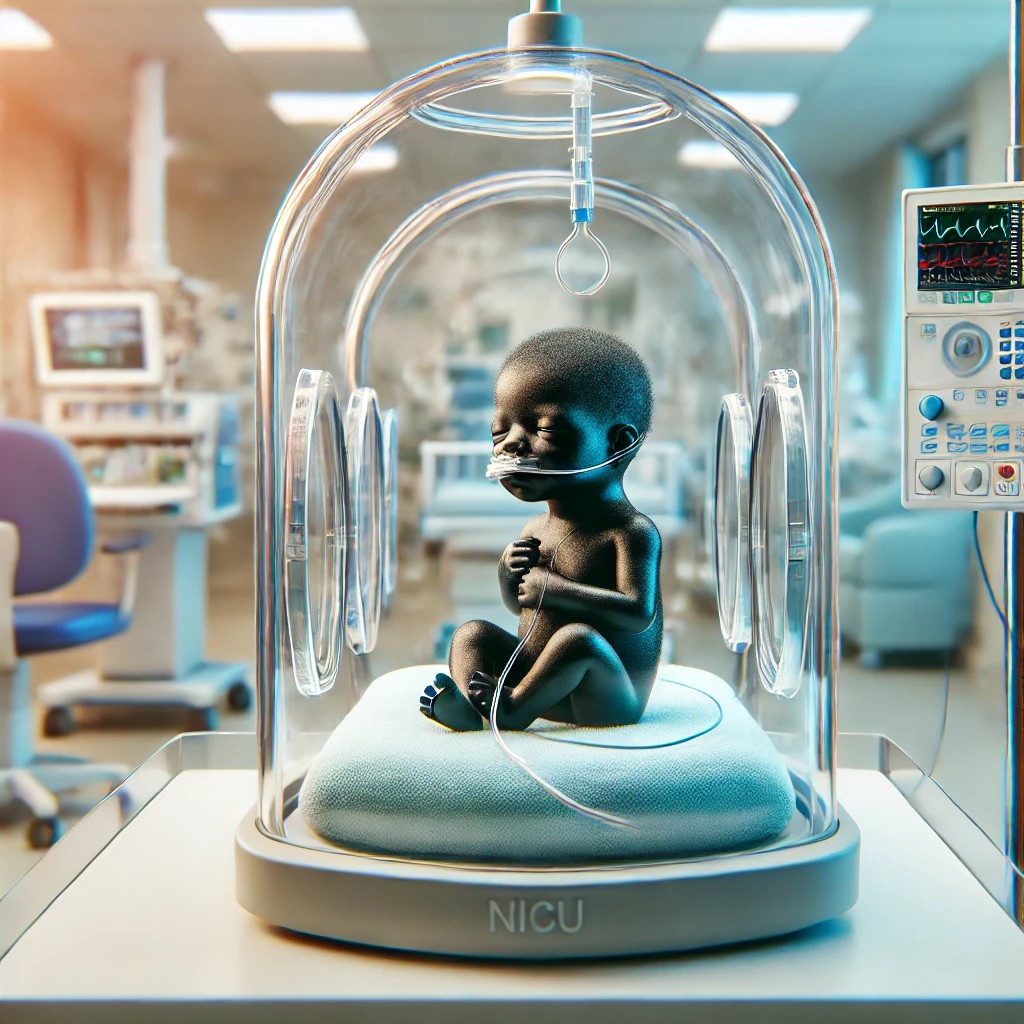Introduction
On the 17th of November this year, the world marked World Prematurity Day, a time to raise awareness about the challenges of premature births and celebrate the resilience of preterm babies and their families. This global event was inspired by the tragic story of a founding member of a European association for small children care who lost his triplets to premature birth. His initiative has since highlighted the need for greater understanding and support for these vulnerable infants.
What is Prematurity?
Normal human gestation lasts around 40 weeks. A baby is considered premature if born before completing 37 weeks in the womb.

A premature baby in an incubator
Why is Prematurity Important?
Prematurity is a significant global health issue as 1 in 10 babies worldwide is born prematurely. 80% of these births occur in Africa and Asia. Prematurity also accounts for 31% of deaths among Nigerian babies under 28 days old.
The Problems of Prematurity
Premature babies face numerous health challenges, including:
- Neurological Issues
- Brain Bleeds: Fragile blood vessels in their brains may rupture under stress, increasing the risk of long-term neurological problems.
- Apnea of Prematurity: An underdeveloped brain may lead to irregular breathing patterns, with frightening pauses.
- Respiratory Challenges
- Respiratory Distress Syndrome (RDS): Babies born before 34 weeks lack surfactant, a substance that keeps their lungs from collapsing. Without it, breathing becomes difficult.
- Perinatal Asphyxia: Preterm babies are less likely to breathe properly at birth, risking brain and organ damage.
- Blood Disorders
- Anaemia of Prematurity: A drop in red blood cells may necessitate a blood transfusion or medication.
- Neonatal Jaundice: The immature liver struggles to process bilirubin, leading to a yellow tint in the skin and eyes. Severe cases can cause permanent brain damage.
- Vision Problems
- Retinopathy of Prematurity: Oxygen therapy, though lifesaving, can damage the retina and impair vision.
- Susceptibility to Infections
- With underdeveloped immune systems, preterm babies are highly prone to infections like sepsis.
Why Are Babies Born Prematurely?
The risk factors for prematurity can stem from the mother (maternal) or the baby (fetal):
Maternal Factors
- Medical conditions: Hypertension, diabetes, and genitourinary infections.
- Lifestyle factors: Smoking, drug use, or inadequate antenatal care.
- Pregnancy complications: Multiple pregnancies (e.g., twins), uterine abnormalities, or a history of preterm births.
- Socioeconomic factors: Poverty, teenage pregnancies, or advanced maternal age (>35 years).
Fetal Factors
- Genetic or congenital abnormalities.
- Infections like cytomegalovirus.
- Preterm premature rupture of membranes (PPROM).
Conclusion
Premature birth is tough, especially in low-resource areas. By raising awareness and improving care, we can give preterm babies a stronger start in life.
Do you have a new baby?
Tap here to learn about shaken baby syndrome!









